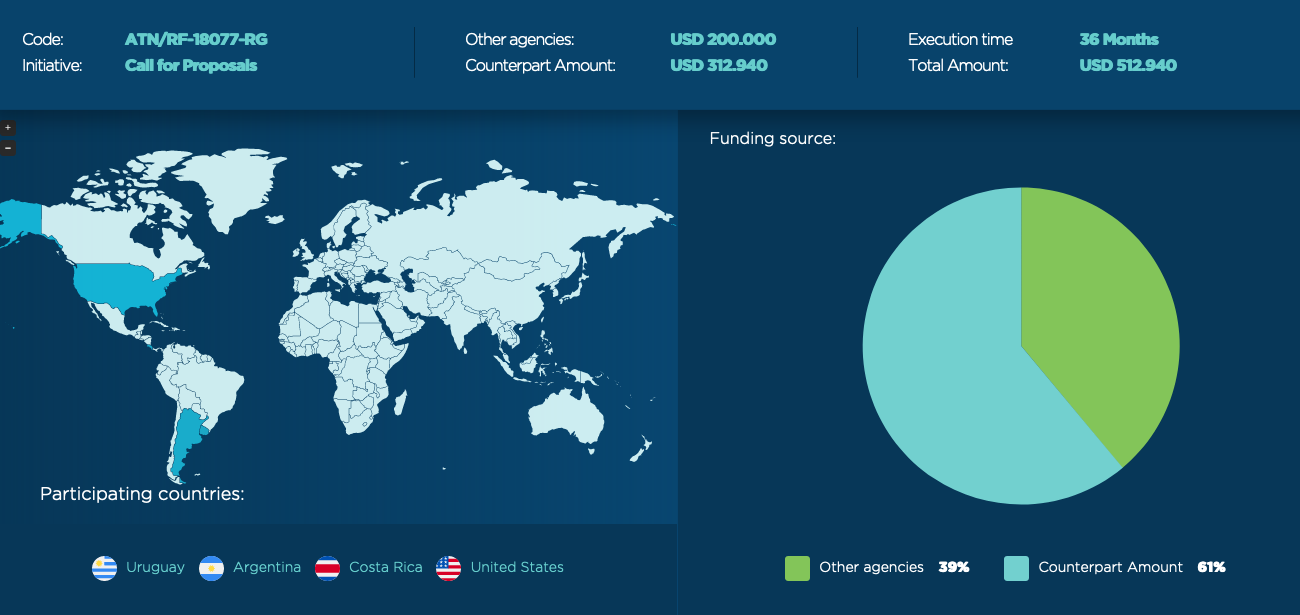(Washington DC, September 21st, 2020). FONTAGRO announces the start of this project, one of the winners of the 2019 Call “From Science to Impact: innovations for climate-smart agriculture through AgTech solutions in Latin America and the Caribbean”.
The project will be financed for a total of US $ 512,940, with contributions from the New Zealand Ministry for Primary Industries and other organizations from Uruguay, Argentina, Costa Rica and the United States.
The initiative supports the objectives of the Global Research Alliance on Agricultural Greenhouse Gases (GRA), of which FONTAGRO is a strategic partner.

The levels of forage harvesting in the livestock production systems of Latin America and the Caribbean are very low in relation to their potential. Improving the levels of production and consumption of grass on the farm requires easy-to-adopt grazing management technologies that allow optimizing the use of grass in quantity and quality throughout the year.
The objective of this project is to improve the self-sufficiency and sustainability of livestock production by increasing (at least 30%) the pasture crop produced on family farms in Uruguay, Argentina and Costa Rica, through the use of drones and simulation models. This initiative seeks to implement a cloud-based service is user-friendly and accessible via the web with a browser or through an APP. With the use of drones and simulation models, it will facilitate optimizing pasture management and increase forage production. It is intended to reach more than 4,000 family producers through transfer and dissemination actions.
The National Institute for Agricultural Research (INIA) of Uruguay is the main executor. The National Institute of Agricultural Technology (INTA) and the ArgenINTA Foundation of Argentina and the National Institute for Innovation and Transfer in Agricultural Technology (INTA) and the Foundation for the Promotion and Promotion of Agricultural Research and Technology Transfer (FITTACORI) of Costa Rica act as co-executors.
In addition, the following institutions are associated to this project: GENTOS (GENTOS) – Argentina, Argentine Association of Regional Consortiums for Agricultural Experimentation (AACREA) – Argentina, Michigan State University (MSU) – United States, Uruguayan Federation of Groups CREA (FUCREA) – Uruguay, and the National Chamber of Milk Producers (CNPL-CR) – Costa Rica.
****
About the Global Research Alliance on Agricultural Greenhouse Gases (GRA)
The GRA was launched in 2009 and continues to grow in membership, with more than 60 countries from all regions of the world. The GRA also partners with key international and regional organisations responsible for the dissemination of evidence-based knowledge to policy makers, the science community and farming leaders. Members and partners of the GRA aim to deepen and broaden mitigation research efforts across the agricultural sub-sectors of paddy rice, cropping, and livestock systems, coordinate cross-cutting activities across these areas, and promote synergies between adaptation and mitigation efforts. The GRA’s objectives are outlined in its Charter and more information on the GRA’s current membership can be found here.
***
About FONTAGRO
FONTAGRO was created 1998 with the purpose of promoting the increase of the competitiveness of the agri-food sector, ensuring the sustainable management of natural resources and the reduction of poverty in the region. The objective of FONTAGRO is to establish itself as a sustainable financing mechanism for the development of agricultural technology and innovation in Latin America and the Caribbean and Spain, and to establish a forum for the discussion of priority topics of technological innovation. The member countries are: Argentina, Bolivia, Chile, Colombia, Costa Rica, Ecuador, Spain, Honduras, Nicaragua, Panama, Paraguay, Peru, Dominican Republic, Uruguay and Venezuela. In the last 21 years 167 regional agricultural innovation platforms have been co-financed for an amount of US $ 124 million, which has reached 452 institutions and 33 countries worldwide.
